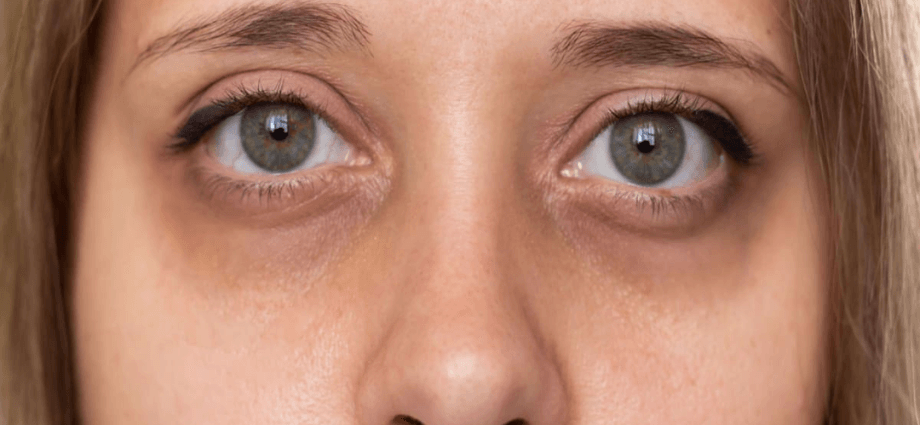Fatigue doesn’t just leave you feeling drained and low on energy; it can also take a visible toll on your skin’s appearance and overall health. When you don’t get enough quality rest, your body struggles to repair and restore itself, and this includes your skin. Experts have found a strong link between inadequate sleep, elevated stress levels, and declining skin health. This connection highlights how closely your lifestyle habits can influence your appearance.
Signs of fatigue are often most noticeable on the face, where dull skin tone, dark under-eye circles, and fine lines can become more prominent. However, the effects don’t stop there—fatigue can also make the skin on your body feel dry, rough, and less vibrant. These changes can leave you looking older than you feel, which may add to the stress of not feeling your best.
Fortunately, understanding how fatigue impacts your skin is the first step toward addressing these concerns. By exploring the causes and effects of tired skin, as well as learning simple expert-backed solutions, you can begin to restore your skin’s natural glow and health. Let’s dive into why this happens and discover practical tips to help your skin look refreshed, even when life gets hectic.
How Fatigue Affects Skin Health
Sleep is often called the body’s natural repair system, and for good reason. During deep sleep, your body works to heal, regenerate, and restore itself. This includes producing essential proteins like collagen, which keep your skin firm, smooth, and elastic. When you don’t get enough rest, this vital repair process slows down, leaving your skin vulnerable to damage and signs of aging.
Fatigue disrupts the natural balance your skin relies on. For example, the lack of sleep can reduce blood flow to the skin, leading to a dull, lifeless appearance. Without enough oxygen and nutrients being delivered to skin cells overnight, the skin may look pale or uneven. You might also notice that your face feels more dry and tight because your skin loses moisture more quickly when it’s not given time to restore its hydration barrier.
Over time, ongoing fatigue can weaken your skin’s protective barrier, making it more sensitive to external stressors like pollution, UV rays, and harsh weather. This can result in irritation, redness, and even breakouts. Additionally, the body produces more of the stress hormone cortisol when it’s fatigued, which can lead to inflammation and a breakdown of collagen. As a result, you may experience early signs of aging, such as fine lines, wrinkles, and sagging skin.
In short, when you don’t give your body the rest it needs, your skin pays the price. It looks tired, feels less healthy, and becomes more prone to long-term damage.
The Link Between Sleep and Skin
Sleep is essential for your skin to repair and regenerate. While you sleep, your body produces collagen, a protein that keeps your skin firm and smooth. Poor sleep disrupts this process, leading to dryness, dullness, and fine lines.
Signs of Fatigue on Skin

Fatigue can appear on your skin in many ways. Here are common signs experts point out:
- Dark under-eye circles
- Dull or uneven skin tone
- Fine lines and wrinkles forming faster
- Dry, irritated, or flaky skin
These issues are often more noticeable after several nights of poor sleep.
The Role of Stress and Fatigue on Skin Damage
Stress and fatigue go hand-in-hand, and both can damage your skin over time.
Stress Hormones and Skin Reaction
When you’re fatigued, your stress levels increase. This causes the hormone cortisol to rise, which can:
- Damage the skin barrier, causing dehydration.
- Trigger inflammation, leading to breakouts or redness.
Fatigue and Premature Aging
Poor sleep doesn’t just leave you tired; it also makes your skin age faster. Without enough rest, your body produces less collagen and loses elasticity. This can cause:
- Wrinkles and sagging skin
- A rough or uneven texture
Experts agree that long-term fatigue can make your skin appear older than it is.
Expert-Recommended Solutions to Fight Fatigue-Related Skin Issues
The good news is that you can improve your skin health by focusing on rest and care.
Prioritize Restorative Sleep
Experts recommend getting 7–9 hours of sleep every night. Here are a few ways to improve your sleep:
- Follow a consistent sleep schedule.
- Avoid screens and bright lights an hour before bed.
- Try relaxing activities like reading or meditation.
Restorative sleep gives your skin the time it needs to heal and look refreshed.
Adopt a Skin Care Routine for Fatigue

A simple skincare routine can help improve tired-looking skin. Experts suggest:
- Using hydrating serums or creams with hyaluronic acid.
- Applying antioxidants like Vitamin C to brighten dull skin.
- Cleansing your face daily to remove dirt and buildup.
This routine keeps your skin clean, hydrated, and glowing.
Stay Hydrated and Eat Well
Hydration is key for healthy skin. Drink plenty of water throughout the day and include skin-friendly foods such as:
- Fruits and vegetables rich in antioxidants (like berries and spinach).
- Omega-3-rich foods (like salmon and walnuts) to keep skin moisturized.
A balanced diet nourishes your skin from the inside out.
Expert Advice on Managing Fatigue for Better Skin
Improving your lifestyle can help you reduce fatigue and its effects on your skin.
Balance Your Lifestyle
Make small adjustments to reduce stress and fatigue, such as:
- Exercising regularly to relieve stress and boost blood circulation.
- Setting aside time for hobbies or relaxation to avoid burnout.
These changes support your overall health and improve your skin’s appearance.
Professional Treatments for Skin Impacted by Fatigue
If fatigue has left noticeable signs on your skin, professional treatments can help. Options include:
- Rejuvenating facials to refresh your skin.
- Light therapy to brighten dull or tired skin.
- Consulting a dermatologist for targeted treatments and advice.
Experts suggest combining treatments with a healthy lifestyle for the best results.
Frequently Asked Questions (FAQs)
Does Lack of Sleep Only Affect the Face?
No, fatigue can impact the skin on your entire body. However, signs like dark circles and dullness are often more visible on the face.
Can Skin Recover Quickly After Improving Sleep?
Yes, consistent sleep can improve your skin over time. While some issues, like hydration, recover quickly, deeper concerns like fine lines may take longer.
How Can I Tell If My Skin Problems Are Due to Fatigue?
Common signs include dull skin, fine lines, and under-eye circles. If these issues persist, consulting a professional can help pinpoint the cause.
Conclusion
Fatigue can take a toll on your skin, causing dryness, dullness, and early signs of aging. Experts agree that improving sleep, adopting a proper skincare routine, and managing stress can make a noticeable difference. By prioritizing rest and care, you can help your skin look healthier and refreshed.
